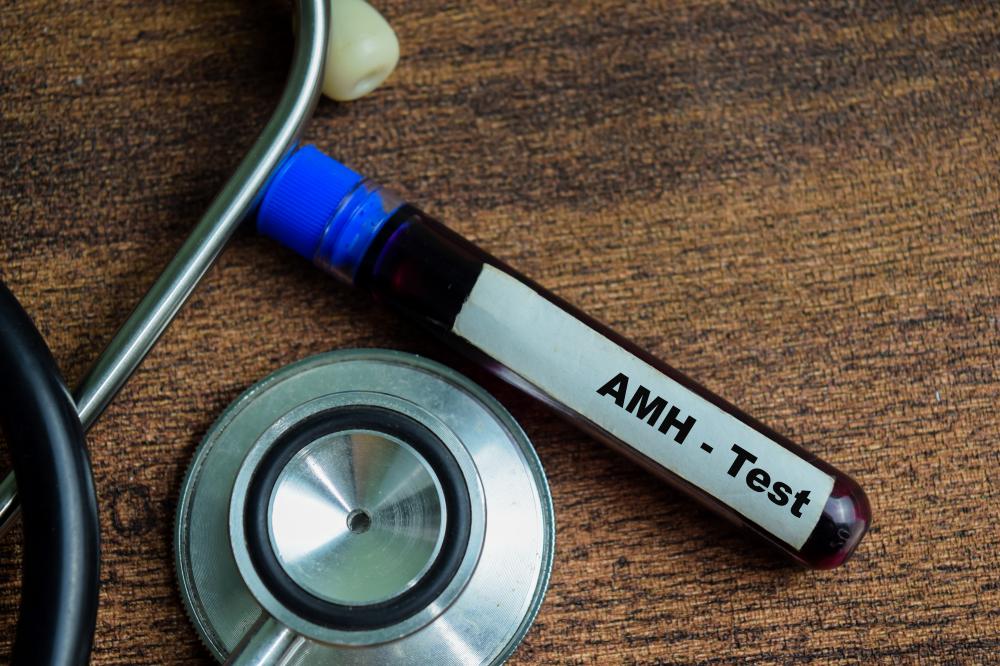AMH

Introduction to AMH Testing
At Ansh Labs, we've carved a niche for ourselves in the complex and fascinating world of immunoassay development, providing groundbreaking solutions for diverse research needs. One area where our passion and expertise shine brightly is in the development of advanced testing protocols for Anti-Müllerian Hormone (AMH), particularly in the vetted field of feline AMH testing for spay status. This pioneering work not only demonstrates our commitment to innovative research but also reflects our broader mission to contribute to scientific advancements that benefit both humans and animals alike.
Our Unique Approach to AMH
Delving into the Heart of Immunoassay Development
Our journey at Ansh Labs is driven by a relentless pursuit of accuracy and certainty. Through our proprietary antibody development and characterization process, we've honed our ability to pinpoint optimal binding sites. This meticulous approach ensures that our assays, including those designed for AMH testing, deliver reliable and reproducible results--critical factors in the fast-paced realm of scientific research and diagnostic testing.
Feline AMH Testing: A Trailblazing Study
Recognizing the unique challenges and unmet needs in veterinary medicine, we embarked on a first-of-its-kind study aimed at establishing expected AMH values for cyclic queen felines. This research not only filled a significant gap in scientific knowledge but also underscored our versatility and innovative spirit in addressing complex biological questions.
Comprehensive Services Offered
Our offerings at Ansh Labs go beyond conventional immunoassay development. We cater to a wide array of research applications, leveraging our expertise to craft solutions that span from dried blood spot testing to ultra-sensitive Inhibin B assays. Our broad service spectrum is a testament to our commitment to supporting the scientific community across multiple disciplines and research areas.
Ensuring Uncompromising Quality and Reliability
Extended Shelf Life for Consistent Results
Quality is the cornerstone of everything we do at Ansh Labs. Our emphasis on maintaining the integrity of our products is reflected in the 24-month shelf life of our assays. This not only guarantees the consistency and accuracy of our products over time but also provides our customers with the confidence that they are utilizing assays of the highest standard.
Advancing Research through Innovation
Turning Hope into Reality
Our vision at Ansh Labs transcends the development and distribution of high-quality immunoassays. We see ourselves as partners in progress, working alongside our customers to turn their hope for a healthier future into tangible outcomes. Our dedication to innovation and excellence makes us more than just a manufacturer--we're a beacon of hope and a catalyst for change in the scientific community.
A Commitment to the Future
Looking ahead, we remain steadfast in our commitment to stay at the forefront of immunoassay development. Our passion for helping our customers achieve their research goals is unwavering, as is our determination to continue contributing to the body of scientific knowledge. As we navigate the challenges and opportunities that lie ahead, our focus will remain on developing solutions that address the unmet needs of today and pave the way for the breakthroughs of tomorrow.
Partner with Ansh Labs
If you're in pursuit of immunoassay solutions characterized by excellent sensitivity, specificity, and reliable results, look no further. Ansh Labs stands ready as your trusted partner, offering the tools and support needed to advance your research endeavors. We invite you to join us on this exciting journey of discovery and innovation, sharing in our commitment to turning groundbreaking ideas into realities. Subscribe to our newsletter to stay abreast of the latest developments in immunoassay technology and research, and together, let's shape a healthier, more informed world.

What is a good AMH level to get pregnant?
When we talk about AMH levels, there's often a curiosity about what constitutes a 'good' level for pregnancy. Essentially, AMH, or Anti-Müllerian Hormone, serves as an indicator of a woman's ovarian reserve. A level of 1.0 to 3.0 ng/mL is generally considered favorable for fertility. However, it's crucial to remember that AMH is just one piece of the fertility puzzle. Through our work at Ansh Labs, we've observed that while AMH provides valuable insights, fertility is multifaceted and involves numerous other factors. So, while higher AMH levels can indicate a more substantial ovarian reserve, other aspects like egg quality, lifestyle, and overall health also play pivotal roles in pregnancy. It's a bit like conducting a symphony--each element needs to be in harmony to achieve the desired outcome.
What does AMH level tell you?
AMH level is a kind of biological 'messenger' that tells us about the quantity of eggs a woman has in her ovaries. It's fascinating because it helps us peek into the biological clock without being invasive. However, here at Ansh Labs, we've come to appreciate that AMH levels share only part of the story. They tell us about the quantity but not the quality of these eggs. So, while a high AMH level might indicate a larger number of eggs, it doesn't directly predict fertility success. It's like knowing you have a lot of seeds in your garden; it's a start, but we also need the right conditions for those seeds to grow and thrive.
What is a normal AMH by age?
Normal AMH levels can indeed vary significantly with age, reflective of the natural decline in a woman's ovarian reserve. In our studies at Ansh Labs, we've charted a general path: women under 30 often showcase AMH levels around 2.0 to 7.0 ng/mL, indicative of a higher ovarian reserve. By the time a woman reaches her 40s, these levels typically decline to below 1.0 ng/mL. It's a testament to the body's natural aging process, akin to the way our energy levels or physical capabilities might change as we grow older. Yet, it's important to remember that these are averages, and there's a wide range of what's considered 'normal.' Every woman's journey is unique, much like a fingerprint, and should be approached as such.
What does AMH do for females?
AMH plays a crucial role in a woman's body, acting as a gatekeeper for the development of follicles, which are the precursors to eggs. In a way, it's the body's way of rationing its resources, determining which follicles should start their journey towards becoming a potential egg. At Ansh Labs, we view AMH as a barometer of ovarian activity. But it's not just about fertility. AMH levels can also offer insights into certain health conditions, such as PCOS, where levels might be higher, or premature ovarian insufficiency, where they could be lower. It shows us that AMH is more than just a number--it's a narrative about a woman's reproductive story and her overall health.
What unique insights does your feline AMH testing for spay status provide?
In our pioneering work with feline AMH testing at Ansh Labs, we've ventured beyond traditional applications of AMH testing. The unique insights we've garnered center not only on determining spay status but also on enhancing our understanding of feline reproductive biology. This research illuminates the parallels and divergences between human and animal AMH dynamics, providing a fascinating window into how hormonal mechanisms operate across species. Through our studies, we've discovered that, much like in humans, AMH can serve as a reliable marker for ovarian reserve in felines, but with the added application of confirming successful spaying. It's an intriguing intersection of veterinary medicine and reproductive biology that underscores the broader potential of AMH testing. This line of inquiry not only deepens our comprehension of AMH but also propels us towards innovative applications that transcend species boundaries, pushing the frontiers of both human and veterinary medicine.
Resources
- National Center for Biotechnology Information (NCBI) - The NCBI provides a wide range of resources and tools for researchers, including access to scientific publications and databases.
- American Veterinary Medical Association (AVMA) - The AVMA is a trusted resource for information on veterinary medicine, including guidelines, research, and educational resources.
- National Institutes of Health (NIH) - The NIH is a leading government agency funding biomedical research and providing resources for researchers and the public.